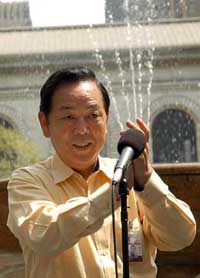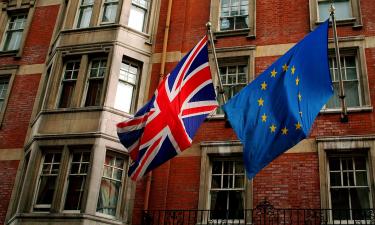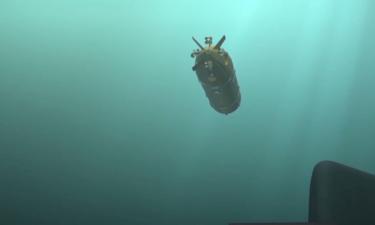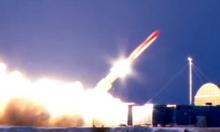Gangster kills Japanese mayor as Tokyo looks to strengthen gun control
The shooting death of the mayor of Nagasaki by a gangster has jolted Japanese accustomed to gun-free streets, sparking a government pledge Wednesday to stop crime syndicates from evading strict gun-control laws.

Nagasaki Mayor Iccho Ito, 61, was shot twice in the back outside a train station Tuesday evening and died early Wednesday. Tetsuya Shiroo, a senior member of Japan's largest crime syndicate, Yamaguchi-gumi, was captured at the scene and admitted to the attack, police said.
"This murder, which took place in the middle of an election campaign, is a threat to democracy," Prime Minister Shinzo Abe said early Wednesday. "We must eradicate violence firmly."
The shooting was rare in a country where handguns are strictly banned. It was the second attack in the last 20 years against a mayor of Nagasaki, which was flattened by a U.S. atomic bomb in the closing days of World War II in 1945 and whose leaders have actively campaigned against militarism.
Chief Cabinet Secretary Yasuhisa Shiozaki said the government would strengthen cooperation among law enforcement agencies to stop gangsters from getting their hands on guns. Organized criminal gangs account for most of Japan's shootings.
"The mayor of Nagasaki was killed by a gun that was illegally possessed," Shiozaki said. "The fact that criminal organizations have stashed away guns through smuggling and illicit sales ... is also a cause."
The attack shook the sense of safety among Japanese, and comes on the heels of Monday's shooting massacre in the United States that killed at least 33 people, including the gunman.
"The use of guns is increasing among gangsters. I want Japanese laws to protect the general public," said Shinichi Tada, a 44-year-old manufacturing company worker in Tokyo.
"I do not want Japan to be like the U.S.," he said as he read an extra on the mayor's death handed out at a Tokyo train station.
Tuesday's attack appeared to involve a trivial matter.
Shiroo reportedly clashed with Nagasaki city officials in 2003 after his car was damaged when he drove into a hole at a public works site. He tried unsuccessfully to get compensation from the city after his insurance company refused to pay up, according to Japanese broadcaster NHK.
Shiroo also sent a letter to broadcaster TV Asahi to protest recent money scandals linked to Ito, including hidden accounts and public works contracts, Kyodo reported.
Backed by the ruling Liberal Democratic Party, Ito was campaigning for his fourth term in office before Sunday's elections. He was an active figure in the movement against nuclear proliferation.
"We are truly saddened by the passing of Mayor Ito," said Nobuhiro Uchida, vice mayor, in a statement issued Wednesday. "We could never forgive such a cowardly act and we feel strong indignation," he said.
Commonly known as yakuza, Japan's organized crime groups are typically involved in real estate and construction kickback schemes, extortion, gambling, the sex industry, gunrunning and drug trafficking.
The yakuza also have had a long-standing political alliance with right-wing nationalists in Japan, although authorities did not indicate that Tuesday's attack was politically motivated.
Organized crime groups are behind most shootings in Japan, with two-thirds of the country's 53 known shootings last year being gang-related, according to the National Police Agency. Police estimate there are about 84,500 gangsters across Japan.
Attacks on politicians in postwar Japan have been rare.
In 1960, Socialist leader Inejiro Asanuma was killed in an attack by a sword-wielding 17-year-old.
In 1990, then-Nagasaki Mayor Hitoshi Motoshima was shot and seriously wounded by a right-wing extremist after saying that Japan's emperor bore some responsibility for World War II.
"This has brought such a sad and unfortunate ending for the people of Nagasaki and for Japan. Violence should not be tolerated no matter for what reason or no matter what may have happened," Motoshima told public broadcaster NHK on Wednesday.
In 2002, a ruling party politician was fatally stabbed in a dispute over political funds. In the 1990s, a Liberal Democrat lawmaker was killed at his home by his daughter and an opposition lawmaker was stabbed to death by a mental patient.
Ito was born in Nagasaki on Aug. 23, 1945, just two weeks after a U.S. atomic bomb devastated the coastal city on Japan's southernmost main island of Kyushu.
He is survived by his wife and two daughters.
Subscribe to Pravda.Ru Telegram channel, Facebook, RSS!





